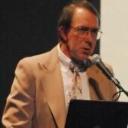Yahoo Clever wird am 4. Mai 2021 (Eastern Time, Zeitzone US-Ostküste) eingestellt. Ab dem 20. April 2021 (Eastern Time) ist die Website von Yahoo Clever nur noch im reinen Lesemodus verfügbar. Andere Yahoo Produkte oder Dienste oder Ihr Yahoo Account sind von diesen Änderungen nicht betroffen. Auf dieser Hilfeseite finden Sie weitere Informationen zur Einstellung von Yahoo Clever und dazu, wie Sie Ihre Daten herunterladen.
How did the Universe start?
i never really thought about this as much as i do now, but how did everything start?
I mean, Everything has to have a beginning and nothing can have existed forever. Something must have started the "Big Bang", and something must have started that something, and that something. etc.
I get very confused and feel so small when i just think about this and how big the universe actually is.
Is this just something that no one will ever really know?
8 Antworten
- uniontera6Lv 6vor 9 JahrenBeste Antwort
People can make answers. But not reason. (This is your so called freewill.)
God can make reason. But not answer. (This is your so called fate and chance.
- vor 9 Jahren
One of the hardest things to comprehend and reconcile in cosmology is the 'free lunch' factor - how it comes to pass that the universe can get something for nothing; how it can go from not existing, to existing; how matter or energy can come into being from its former non-existing state. To be fair though, cosmology is not the only worldview suffering from this dilemma. Any account of supernatural creation, also leaves the existence of its creator unexplained. Even then, it has resorted to the assumption that supernatural powers exist and natural laws are subject to inexplicable violations.
The Universe is about 13.7 to 14 Billion years old. We can see 13 to 14 billion light years away in the universe, the further away the object the more ancient light we presently receiving from it. From these light years we are actually looking back through time as we look out through space. Traversing the eons back through 13.7 billion light years we come to a point where time and space cease to exist, but what happens when we travel more? The answer is unknown.
So where did everything in the universe come from? There is no accurately correct answer to this question, which will remain not known. Some say the Big Bang created this universe which is a scientific theory, and religions says God created the universe. But believe what you believe what created this universe.
- MKultraLv 7vor 9 Jahren
It's simply not known, like many quandaries of physics.
If it were known if would be very well publicized, as it's one of the obvious questions asked by everyone - how can something exist from nothing. Only conflicting or incomplete theories are available.
To some this is part proof of a 'creator' or deliberation in the universe (not necessarily a religious 'God'). There are many 'far out' theories, each as plausible/implausible as each other.,
It is proof that we are only scratching the surface of science and there is a LOT to learn, despite what we think we already know. It is arrogant to believe we have an answer to your question, particularly if it can't be relatively simply explained.
- Anonymvor 9 Jahren
Big Bang is one theory.
Another is that there was no start or end. It has always been. Time is infinite in both directions. The Big Bang is just one event that happens in the Universe.
When the Universe is finished expanding it will start to collapse and have a Big Bang again and start over. Life is just a series of Big Bangs, 100's of Billions of years apart.
- Wie finden Sie die Antworten? Melden Sie sich an, um über die Antwort abzustimmen.
- vor 9 Jahren
What caused the Big Bang? There are a few hypotheses, but nothing concrete.
As for how the Big Bang created our modern universe? During the rapid expansion from, what we can call "year one", atoms were unevenly distributed. This caused them to eventually form gaseous balls, and then into what we call "stars". Inside these primordial suns, nuclear fusion occurred, creating the heavier and more dense elements we have today.
Poetically, you and I are both star dust.
As for the "Big Crunch" theory, that has been shelved for now. It is much more probable that entropy will dissolve the universe before the expansion reverses.
Quelle(n): http://science.nasa.gov/astrophysics/focus-areas/w... http://en.wikipedia.org/wiki/Nuclear_fusion - godlessLv 7vor 9 Jahren
It used to be that science couldn't answer the question about the origin of the universe or of the Big Bang, but that didn't mean we should make up an answer (such as a god) and say that it was the cause. Within the last few decades scientists have discovered some good answers. Of course, a scientific explanation is more complex than simply saying, "God did it."
Quantum mechanics shows that "nothing," as a philosophical concept, does not exist. There is always a quantum field with random fluctuations.
There are many well-respected physicists, such as Stephen Hawking, Lawrence Krauss, Sean M. Carroll, Victor Stenger, Michio Kaku, Alan Guth, Alex Vilenkin, Robert A.J. Matthews, and Nobel laureate Frank Wilczek, who have created scientific models where the Big Bang and thus the entire universe could arise from nothing but a random quantum vacuum fluctuation in the quantum field -- via natural processes.
In relativity, gravity is negative energy, and matter and photons are positive energy. Because negative and positive energy seem to be equal in absolute total value, our observable universe appears balanced to the sum of zero. Our universe could thus have come into existence without violating conservation of mass and energy — with the matter of the universe condensing out of the positive energy as the universe cooled, and gravity created from the negative energy. When energy condenses into matter, equal parts of matter and antimatter are created — which annihilate each other to form energy. However there is a slight imbalance to the process, which results in matter dominating over antimatter.
I know that this doesn't make sense in our Newtonian experience, but it does in the realm of quantum mechanics and relativity. As Nobel laureate physicist Richard Feynman wrote, "The theory of quantum electrodynamics describes nature as absurd from the point of view of common sense. And it agrees fully with experiment. So I hope you can accept nature as she is — absurd."
For more, watch the video at the 1st link - "A Universe From Nothing" by theoretical physicist Lawrence Krauss, read an interview with him (at the 2nd link), get his new book (at the 3rd link), or read an excerpt from his book (at the 4th link).
-
Quelle(n): http://tinyurl.com/y8j6tpa http://www.samharris.org/blog/item/everything-and-... http://www.amazon.com/Universe-Nothing-There-Somet... http://www.scientificamerican.com/article.cfm?id=u... http://www.godlessgeeks.com/WhyAtheism.htm#bigbang http://www.stellarhousepublishing.com/originsofchr... http://freethoughtblogs.com/wwjtd/2012/01/19/will-... http://www.atheismresource.com/2010/jesus-never-ex... http://www.godlessgeeks.com/JesusExist.htm - Anonymvor 9 Jahren
Billions of years ago, scientists believe the universe was created by -GOOOOOOOOOOOOOOOOOOOOOOOOOOOOOOOOOOOOOOOOOD - ang theory
- Anonymvor 9 Jahren
Yeah....pretty much.




